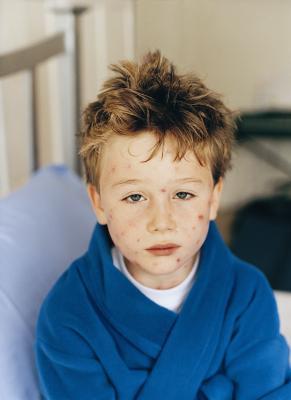Search Results for: Herpes symptoms
Symptoms of the First Genital Herpes Episode
According to the Centers for Disease Control and Prevention, nearly one out of six Americans between the ages of 14 and 49 is infected with genital herpes. Many, however, are not aware they have the infection since identifiable symptoms do not occur with each person. When symptoms do appear with a first genital herpes episode, they typically remain for up to 4 weeks and may reappear as outbreaks several times throughout the first year of infection.
Herpes Virus in Children
When you think of herpes, your first thought may be the dreaded, incurable sexually transmitted disease. There are actually eight types of herpes viruses that typically cause infection in humans, from the virus that causes cold sores to the viruses that cause common childhood rashes. The various viruses cause a range of ailments, from the mild cold sore to the rather unpleasant chickenpox.
Cold Sore Remedies for Children
The herpes simplex virus causes cold sores. It is a common virus that children can spread by sharing toys, coughing and sneezing. Rubbing a cold sore and then touching others may also transmit the virus. The American Academy of Pediatrics’ Committee on Infectious Diseases recommends covering a cold sore with a bandage to avoid spreading the virus to other children. There are some simple remedies you can use to help ease your child’s discomfort while a cold sore is healing.
Cold Sore Treatment for a Child
Even though they’re called cold sores or fever blisters, these fluid-filled swellings have nothing to do with a cold or a fever. A cold sore is a contagious herpes virus that your child probably contracted from sharing a cup, toy or utensil with someone who has it. A kid can also get a cold sore if someone with the active virus — visible sore or not — kisses him. Most kids get a cold sore at some point during their childhood; the virus may flare up again or lie dormant forever.
The Reproductive Health of Women
The Centers for Disease Control and Prevention states that a woman’s reproductive system is one of the most fragile parts of her body. You need to protect yourself and take care of any issues as they arise. Knowledge is one of the key factors in understanding your body, along with getting regular preventative care.




